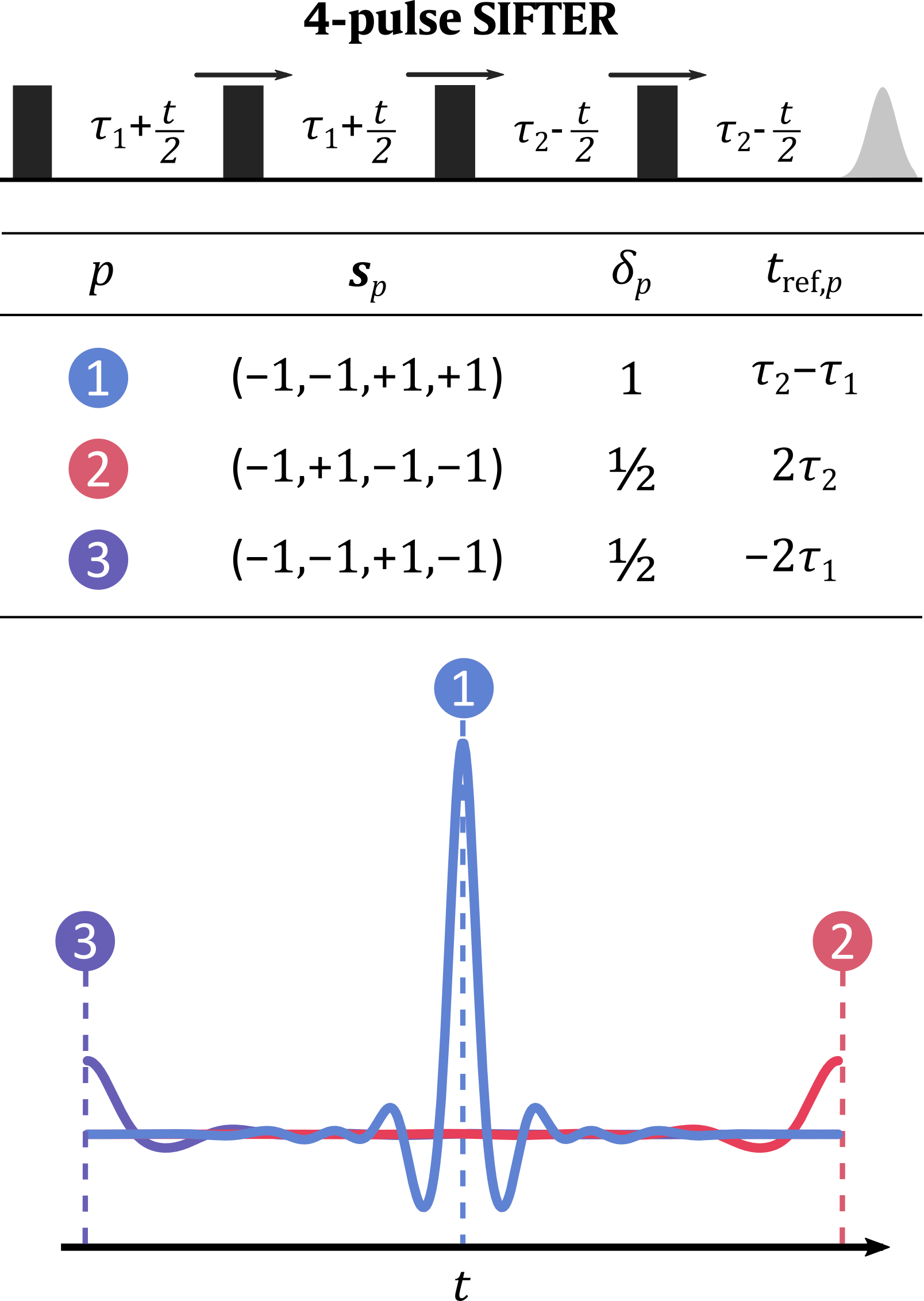deerlab.ex_sifter¶
- ex_sifter(tau1, tau2, pathways=[1, 2, 3], pulselength=0.016)[source]¶
Generate a 4-pulse SIFTER dipolar experiment model.
The figure below shows the dipolar pathways in 4-pulse SIFTER. The pulses and the interpulse delays are shown on the top. The middle table summarizes all detectable modulated dipolar pathways
along their dipolar phase accumulation factors
, harmonics
and refocusing times
. The most commonly encountered pathways are highlighted in color. The bottom panel shows a decomposition of the dipolar signal into the individual intramolecular contributions (shown as colored lines).

Source: L. Fábregas-Ibáñez, Advanced data analysis and modeling in dipolar EPR spectroscopy, Doctoral dissertation, 2022¶
- Parameters:
- tau1float scalar
1st static interpulse delay
.
- tau2float scalar
2nd static interpulse delay
.
- pathwaysarray_like, optional
Pathways to include in the model. The pathways are specified as a list of pathways labels
. By default, all 3 pathways are included as shown in the table above.
- pulselengthfloat scalar, optional
Length of the longest microwave pulse in the sequence in microseconds. Used to determine the uncertainty in the boundaries of the pathway refocusing times.
- Returns:
- experiment
ExperimentInfoobject Experiment object. Can be passed to
dipolarmodelto introduce better constraints into the model.
- experiment